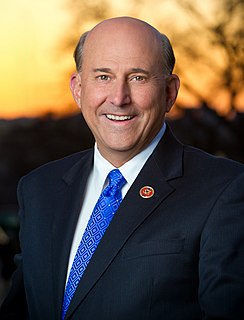A Quote by Cat Stevens
Muslims have been subjected to so many tyrants and oppressive regimes. That's what the Arab Spring was about, but the problem comes in trying to direct a revolution.
Quote Topics
Related Quotes
The world has paid a heavy price for the lack of democracy in most of the Middle East. Operation Ajax [CIA code for the August 1953 coup] taught tyrants and aspiring tyrants there that the world's most powerful governments were willing to tolerate limitless oppression as long as oppressive regimes were friendly to the West and to Western oil companies. That helped tilt the political balance in a vast region away from freedom and toward dictatorship.
When the Islamic revolution began in 1979 under the leadership of Ayatollah Khomeini, it aroused considerable admiration in the Arab street. It presented a model of organised popular action that deposed one of the region's most tyrannical regimes. The people of the region discerned in this revolution new hope for freedom and change.
You can understand Tunisia revolution as a failure to censor the internet. And Libya had that failure too. It's very difficult for governments that are autocratic and don't have broad popular support to be in power when a lot of people have these devices. That was what Arab Spring was about, that people could express this and lead to revolution.
I do not think there is such a thing as a "clash of civilizations." When I say that Muslims as Muslims cannot be represented in the West, I was being ironic, and also referring to the fact that ninety percent of the time when people talk about "the problem of Muslims" in the West, it is to complain about the fact that Muslims have not "integrated."
I am being very humble about the Arab Spring. There's kind of a competition out there, you might have noticed, of who can be the first to say the Arab Spring is going to fail. Everyone says, "I told you so, I told you so about the Muslim Brotherhood." I have no desire to tell anyone anything. I don't know. I'm just listening, watching. It may turn out all these people are right, they may be wrong. They may be right this year and wrong next year, by the way. I'm just trying to listen day to day, figure it out.
What is irreversible in the Arab world is this intellectual revolution, the awakening that we can get rid of dictators. That is here, and the people have this sentiment and this political power. They feel that they can do it, and it's still there. At the same time, we don't know what is going to happen. So to be very quick by saying, "Oh, revolutions and Arab Spring," and - you know, what I'm advocating is to take a cautious optimism as the starting point of our analysis and to look at what is happening.
The west is very concerned and actually afraid because the media is not informing them. There are too many moderate Muslims who are trying to whitewash the fears and concerns of the West. It's time for us to face reality - nobody is against Muslims. When I'm speaking about this situation, it's about Islamic doctrine. Islamic doctrine promotes violence and hatred against non Muslims. 60% of the Koran is dedicated to cursing and spreading hatred and violence against non-Muslims who are called 'Kaffir'.



































